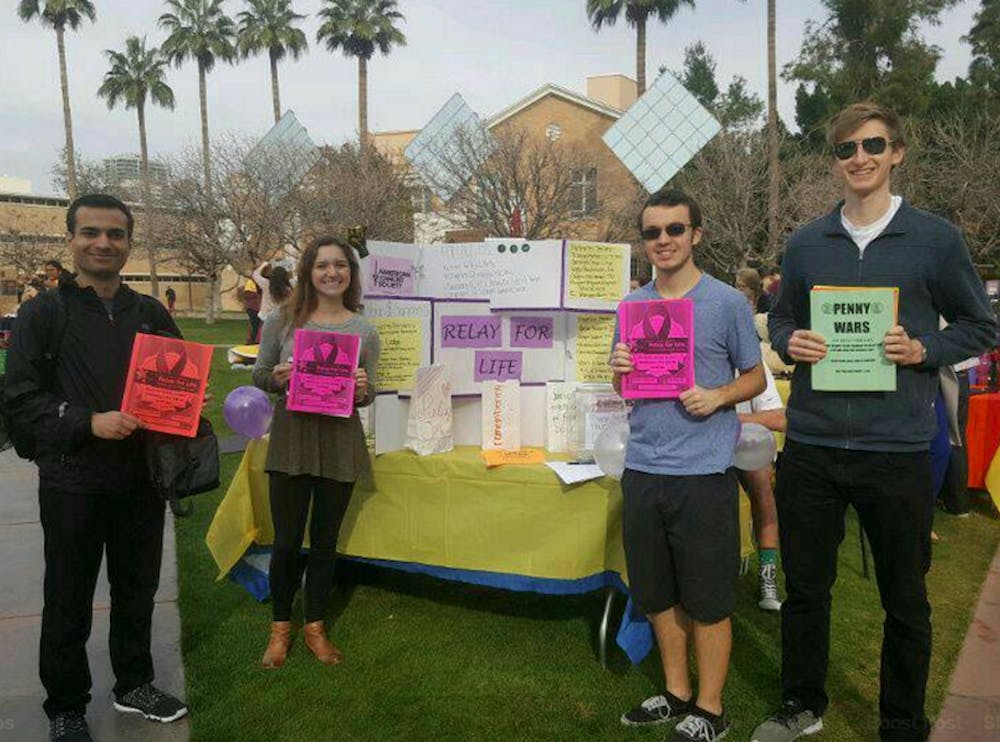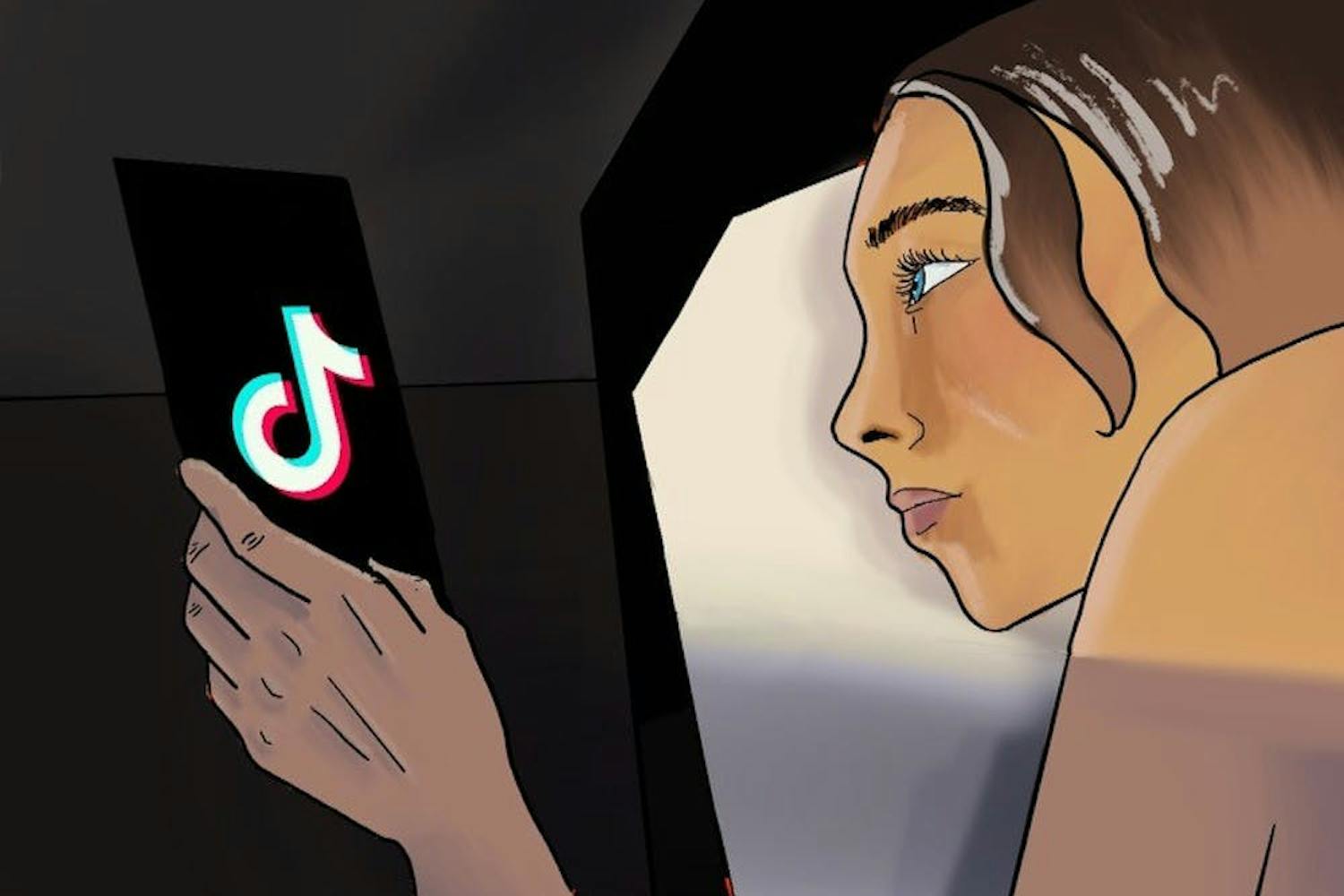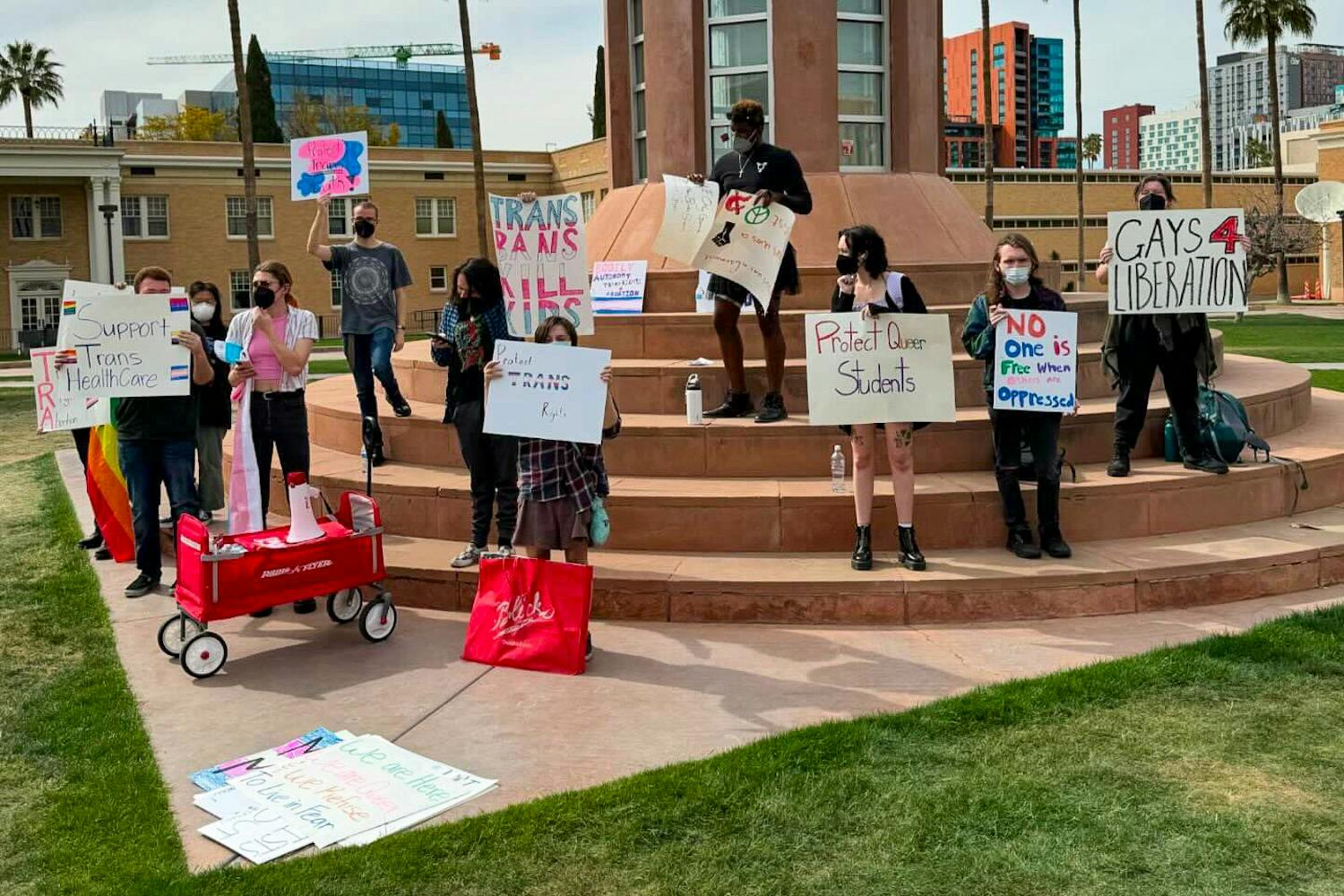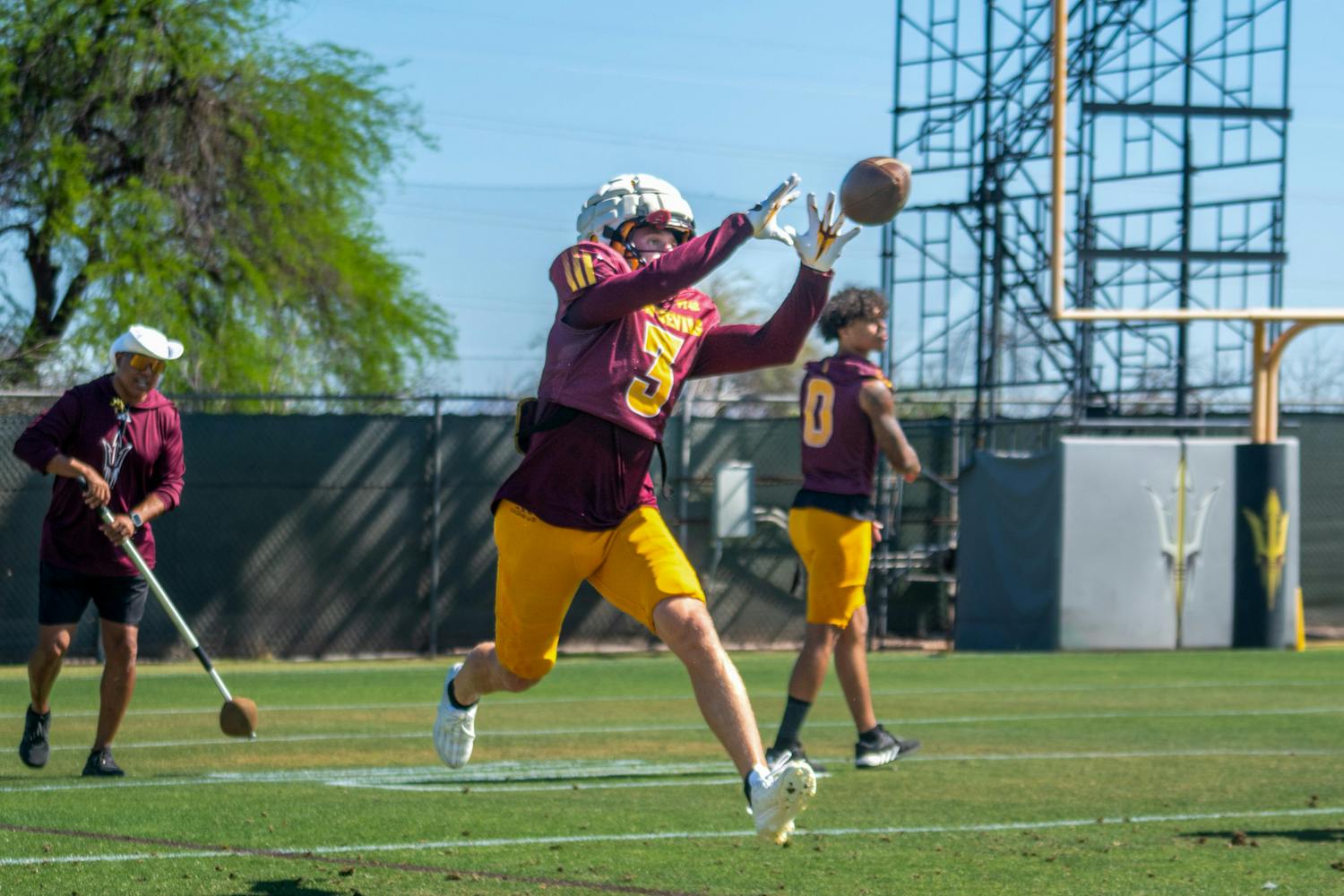In an effort to generate more participation in cancer research, the American Cancer Society, in partnership with ASU’s Colleges Against Cancer, will bring a new twist to the signature Relay for Life event on April 1.
Relay for Life is a fundraising event for cancer research and patient care programs that takes place in 5,200 communities and 27 countries. It began when Dr. Gordon Klatt, the founder of Relay for Life, walked 24 hours around a track at the University of Puget Sound to raise money for cancer research, according to the American Cancer Society website.
With a goal of raising $10,000 within the next six days, Relay for Life in Color will feature hypnotists, dance crews, bands and food to attract more supporters to the event. According to the website for Relay For Life of ASU, $4,281.91 has been fundraised by ASU clubs and affiliates.
Brooke Whittington, a biochemistry sophomore and co-lead for the Relay for Life event taking place on Old Main Lawn, said she thinks people want to see a different kind of Relay for Life.
“Our event is going to be a spin-off from the original Relay for Life, which is where you walk around the track and it symbolizes that cancer never sleeps,” she said. “It seems to have fallen off as a trend.”
With the event open to the community, Whittington said she hopes it will bring even more people.
“If it’s on campus then it’s easier for a lot of students to get there, but also it’s to tie together the ASU community with outside community,” she said.
Whittington said while the event will include more activities, games, food and music compared to previous years, Colleges against Cancer’s goal remains the same.
“Cancer affects everyone in some shape or form, so this is our way of honoring those who are affected and those who are fighting against cancer and have a long way to go,” she said. “Our main goal is to fundraise as much as possible.”
For Whittington, an encounter with cancer propelled her to give back to Relay for Life and the American Cancer Society, she said.
“My grandma recently passed away from breast cancer, so cancer has definitely touched my heart and every part of my life, and I really want to find a cure and celebrate life in general,” she said.
Whittington said being at this event will be beneficial to her coping process.
“Going to this event would kind of bring some closure as well as some celebratory aspect to it,” she said. “There is still a lot to celebrate with the progress the American Cancer Society has made.”
Jamie Handlos, a chemical engineering sophomore, recently joined the committee for Relay for Life after losing her aunt to cancer last year. She said decreasing support has made it difficult to plan these events.
“It’s hard not having the support because we’re trying to do it all on our own, and it supports a really good cause,” she said.
Handlos said she thinks the reason for low attendance is because people are not as familiar with the event and what it does for the community.
“I’m from the Midwest and where we are everyone knows about Relay, everyone participates and we raise a ton of money,” she said. “I just noticed that here in Arizona, people just don’t know about it.”
Handlos said raising awareness for Relay will improve both the outcome of the event and the lives of those affected by cancer.
“As more people get involved, they’ll raise more money for the American Cancer Society,” she said. “The American Cancer Society will continue to provide support for people battling cancer and help us to raise awareness about the people who are cancer survivors and everything they have gone through.”
Paris Major, a elementary education freshman, also said she has a personal tie that brought her to participate in Relay for Life.
“With my mom — they found cancer cells in her thyroid and although they had it removed and she was fine, it definitely hit me,” she said. “Anyone can really get cancer and so it’s rewarding to help fund cancer research and talk to survivors and families.”
Major said being a part of Relay for Life events in the past have opened her eyes to how many people are impacted by cancer.
“It just really puts cancer in front of you, especially for people who haven’t ever dealt with anyone they know or love having cancer, it kind of makes it more real to you,” she said. “You never know what someone is going through.”
Major said she thinks adding new elements and activities to the traditional Relay for Life will increase engagement and awareness.
“I actually feel really sad because I think people are like ‘that’s so boring’ or ‘that’s so long,' but it’s actually such an important event,” she said. “I think you learn so much and you can never go wrong giving back to a community and helping in every way you can.”
Reach the reporter at kasando1@asu.edu or follow @karismasandoval onTwitter.
Like The State Press on Facebook and follow @statepress on Twitter.




